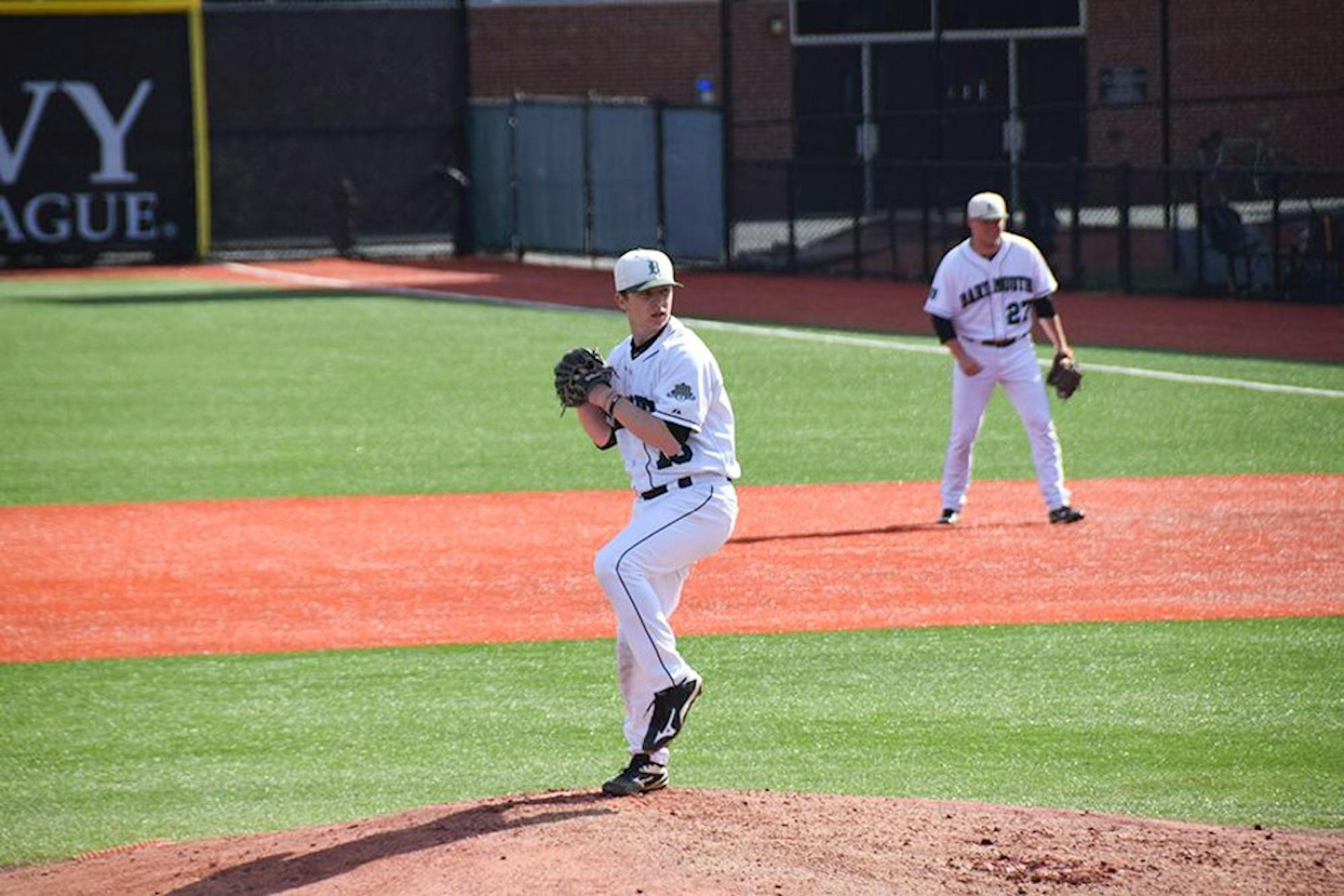Bob Whalen officially entered his 28th campaign at the helm of Big Green baseball in late February when the team began its annual southern sojourn to escape the New England cold and kick off its season. During his tenure, the Big Green has taken home two Ivy titles, as well as 11 Red Rolfe Division crowns, and sent 26 players into professional baseball. This year’s team is looking to continue in that winning tradition.
While the team often struggles in the early season, playing against top-tier opponents who have often been playing games long before Dartmouth begins its season, the Big Green gotten off to an impressive 10-6 start, winning every series they have played in, besting The Citadel, the University of Central Florida and University of Miami, Florida — then ranked 17th in the nation.
Over the weekend, the Big Green wrapped up its series win over UCF and then began the journey back to Hanover for its regular slate of games, with Ivy League series on weekends and non-conference match-ups sprinkled in during the week. On Wednesday, the team will travel down to Hamden, Connecticut to take on Quinnipiac University before playing double headers against the University of Pennsylvania and Columbia University away from Red Rolfe Field.
Tell me about how the start to the spring season has been going.
BW: I never like to compare teams year-to-year. Each team has its own chemistry that it needs to develop. When we are down here, it’s just a great environment. We are playing in good venues and good stadiums. It’s fun for our kids. That being said, we still need, like every team, to get better at every phase of the game every day, and so we’ve been working at it. We work out in the morning before we start every series to get acclimated to the ballpark and the stadium. We’re trying to get better, but I have to say, right out of the chute, we have played very consistently. Our guys have done a really good job of playing a complete game. Our lineup has done a good job of creating a little more length than we’ve had. Our ability to score some runs has taken some pressure off of our pitching and defense, so our kids have played together very well. We still need to be better. We’re trying to get better, but I’m very proud of the way our players have played up to this point.
What would you say has been the highlight of the season so far?
BW: I don’t really look at it like that. The highlight has been not picking one phase of the game over another. The highlight is that we haven’t lost a series yet. We won two out of three in our very first weekend against Division I, scholarship programs. Shutting out [University of Miami, Florida] a nationally-ranked team, on the road twice in a three game series is probably the obvious moment to point to. From a competitiveness standpoint, that’d be it.
What do you have to do to carry over the success you’ve had thus far into the rest of the season?
BW: Well, if I knew that, I’d be in the stock market. Baseball’s an everyday game. It’s not like going Saturday to Saturday in football and studying a lot of film. It’s about getting better in every phase of the game consistently and understanding that we go from the spring trip where you play every day to the conference schedule where you play on the weekends. Those games are obviously of paramount importance, so you focus on fundamentals and making sure that whatever your philosophy is in preparing your team that you’re consistent with that. What you spend time on in practice has to be consistent with what you tell them our priorities are. Today, we didn’t do any defense because we couldn’t get on the infield, so we worked on the short game offensively — bunts, moving runners and some situational hitting, which you don’t always have time to do in pregame batting practice.
Could you talk about what those priorities and philosophies are?
BW: Just fundamental stuff, I’m not going to get into a lot of detail, but I’m a big believer in just playing the game hard and competing and focusing on the mental side as much as the fundamentals of the game. The fundamentals of the game of baseball don’t change, but how you teach them and how you coach them does change. We’re constantly trying to find new ways to improve their fundamentals. We’ve played pretty consistently. Our kids have thrown strikes. For the most part, we’ve done a pretty good job of playing defense when you consider that we’re one of the only teams at Dartmouth where you practice your entire preseason on a different surface than you compete on. You think about all the other sports, they practice on the same surface and facility where they play all their games, and we don’t. Eighty percent of baseball is on the ground, because better defensive play is the best way to help your pitching so you don’t expose them to more batters faced, which will lead very directly to saving more runs. The kids have done a great job. I’m really happy with how hard they’re working.
If you could summarize the season thus far in just a sentence or two, what would you say?
BW: I’m very pleased with the fact that we’re playing complete games. We’re not playing well for four or five innings and then losing the second half of the game. I’m very pleased with the way the players are competing.
This interview has been edited and condensed for length and clarity.




